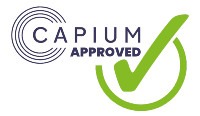If you’re facing one of HMRC’s self-assessment enquiries, it’s natural to feel anxious and overwhelmed. However, there are steps you can take to prepare yourself and make the process as smooth as possible. From gathering necessary documents to seeking professional advice, here are some tips to help you navigate self-assessment enquiries with confidence.
HMRC self-assessment enquiries
HMRC launches self-assessment enquiries and compliance checks for a wide range of reasons. For example, you might have made an error in your self-assessment tax return — or perhaps HMRC is performing more compliance c
But regardless of whether you’re in the wrong or not, receiving that brown envelope in the post can be nerve-wracking. Thankfully, there are a few things you can do to make the process as painless as possible.
What should I do during a self-assessment enquiry?
Organise and send documents
After receiving your opening letter, one of the first things you should do is gather any paperwork and records relating to the tax enquiry. This will include any documentation you need to provide, along with details of correspondence between yourself and HMRC.
If HMRC requests physical copies of your documents, we’d recommend sending them via recorded delivery so you have proof of postage and proof of receipt.
Follow HMRC’s lead (within reason)
Generally speaking, the more compliant you are with HMRC’s requests, the smoother the process will go. The outcome can depend on how helpful you are during the enquiry. Providing more assistance could result in a lighter penalty.
So long as HMRC acts within the time limits, and you believe the demands in the opening letter are reasonable, you should aim to answer their questions as accurately as possible and provide the information they ask for.
HMRC can get things wrong, however, so you can challenge its demands if you believe they’re unreasonable.
Meet with HMRC

If you think setting up a meeting would help, you can request one yourself.
Stick to the timeframe
You should aim to send documents and answer HMRC’s questions sooner rather than later to ensure you fulfil your obligations within the set timeframe.
If you believe you won’t have enough time, you should speak to the officer dealing with your enquiry to explain your situation. Depending on your circumstances, HMRC may give you extra time to provide the requested information.
Make up the difference
In cases where you’ve underpaid your tax bill, you’ll usually have 30 days after signing your contract settlement to make up the difference.
If you’re unable to pay the amount in full, you should contact HMRC as soon as possible. Depending on your circumstances, you could have up to six months to make the full payment — although this could result in a higher interest rate charge.
On the other hand, if you disagree with HMRC’s decision, you can ask for a statutory review or appeal to the independent tax tribunal. You can do this at any point during the enquiry, or 30 days after the enquiry ends.
Hire a professional

We’d highly recommend seeking professional advice as soon as possible — especially if you believe your tax records are incorrect or if HMRC suspects you of tax fraud. A skilled tax investigation specialist can advise you on how to best approach your enquiry.
Harries Watkins Jones can guide you through the process step by step. We know how stressful compliance checks can be, so we’ll answer any questions you may have to help alleviate your concerns.
We can even communicate with HMRC on your behalf, helping to ensure that the taxman follows their guidelines and reducing your administrative burden.
Is HMRC launching an enquiry into your personal tax affairs? Get in touch for support with self-assessment enquiries.
Reduce the impact HMRC self-assessment enquiries
Firstly, try to avoid a tax enquiry
But, HMRC is entitled to enquire into any self-assessment tax return.
Before an officer of the Board can commence an enquiry into a taxpayer’s tax return, they must first provide written notice of their intention to do so. This is the only condition that must be met before the enquiry can begin. This notice serves as a way to inform the taxpayer of the upcoming enquiry and give them an opportunity to prepare and respond accordingly.
HMRC state;
“Enquiries comprise a mixture of selected audits and random audits
Although HMRC have the right to check any tax return, at random, including those in which everything appears to be in order, most enquiries are selected according to risk, for example, on the basis that there is significant tax at risk, or a suspicion that something is wrong.
In addition to the risk-selected enquiries there are a smaller number of random selections.
HMRC do not say whether a particular enquiry was selected on risk or randomly, but may identify particular areas on which the enquiry will focus.”
So you can’t remove the chance of being under one of HMRC self-assessment enquiries completely, as some are clearly random. But you can reduce HMRC’s perceived risk of having your tax return enquired into. We can’t provide a definitive checklist but the items listed below are good practice anyway, and in theory should reduce your risk of being selected for one of HMRC self-assessment enquiries (obviously not all will apply to everyone):
- File your self-assessment tax return on time
- Check for simple errors, are all your personal details correct and up to date?
- Check for omissions, are all sources of income and gains included?
- Have you included any higher income child benefit charge?
- Do you have foreign income or gains, is it correctly included?
- Have you calculated any pension annual allowance charges correctly?
- Have you sought professional advice for any aspect of completing your tax return that you are unsure about?
- Where HMRC guidance requires you to provide additional information, have you provided it?
Secondly, consider subscribing to a fee protection scheme

Providers of these schemes include some trade associations, business insurance providers and accountants. When considering the scheme it is worth checking coverage, any excess and who will act on your behalf in the event of coming under one of HMRC’s self-assessment enquiries. If you used an accountant to prepare your self-assessment tax return, it is not always an option to use the same accountant to act for you during the tax enquiry.
At Harries Watkins Jones, we provided an option for our clients to join our fee protection service.


